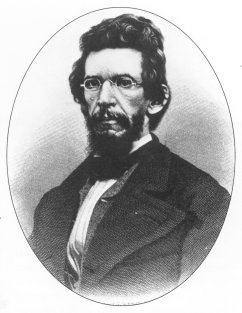|
The South
Cries, More
Labor
We
have often argued the labor question
in the Review, in connection with the slave-trade, but the South
has seemed to differ with us and we incline to drop the subject.
In what the Augusta Constitutionalist
says upon the scarcity of labor at the South, there is much good
sense.
It requires no
uncommon sagacity to discover that the
wealth and strength of the South lie in its agricultural
resources. So far as these remain in a state of nature, or are
developed in a way seriously to impair the productiveness of the
land cultivated, the public either gains nothing therefrom, or
reaps benefits of the most ephemeral character. A plain statement
of facts will set this matter in a clear light before the reader.
1st. The
Southern States contain over six hundried
million acres of land, which, for agricultural purposes, is not
surpassed, and probably not equalled, all things considered, by
any other equal area on the habitable globe.
2d. All the
enclosed land in the South, according to the census
of 1850, is fifty-five million three hundred and eighty-four
thousand seven hundred and six acres, or less than one acre in
ten.
3d.
Experience has abundantly proved that negro labor, as
employed in the planting States, is best adapted to the
produetion of those tropical and semi-tropical plaints which are
the staple crops of the South.
4th.
Experience has also shown that we cannot rely on immigrants
from Europe to supply labor for the cultivation of cotton, rice
and sugar in this country.
5th. In
consequence of the supply of laborers firom Africa having
been wholly cut off since 1808, and the great demand for negro
labor in all cotton, sugar and rice-growing districts, with the
unavoidable high price of slaves, planters have been placed in
that unnatural and unwise position which renders it more
profitable to wear out the very cheap lands of the sunny South,
than to maintain their virgin fertility. Had labor, during the
last fifty years, been approximately as cheap as farming lands,
or were slaves now as cheap as plantations, they could be bought
at prices that would enable every enterprising man to improve his
soil, and thus soon double the wealth and every kind of business
connected therewith, in the slavehlolding States. At the present
perfectly abnormal, not to say extravagant price of good field
hands, no one can afford to use slave labor for the production of
manure, unless it be in purely exceptional cases. As a system of
planting applicable to all cotton and corn fields, ours is
emphatically in a false position.
No thoughtful,
intelligent man can survey the old
fields from the Chesapeake to the Mississippi, and not bear
witness to the fact that there is something fundamentally wrong
in Southern agriculture. To right this wrong is what the South
most needs, and it can never enjoy lasting prosperity until its
citizens have the good sense to find out wherein the wrong lies,
and remove it.
The wise and
good men who framed the Federal
Constitution did not, could not, foresee the importance that was
soon to attach to cotton culture in a part of the United States;
nor how indispensable more laborers from Africa would become in
the course of time, to meet the growing wants of the civilized
world, in reference to our present great agricultural and
commercial staple. Could they have looked into the unknown
future, and in place of prohibiting the importation of slaves
after the lapse of twenty years from the adoption of the
Constitution, provided for the suppression of all the cruelties
of "the middle passage," and given to this class of
immigrants into the New World, every needful protection that good
laws rigidly enforced can afford, the South would to-day be worth
three times more than it is. Land and labor would then have borne
relative prices, based on equal availability and sound
agricultural economy; so that the soil, rapidly appreciating in
value, because of the abundance of labor to improve it, would
have been too useful to society to permit its destruction. Now,
the great misfortune lies in the fact that Southern public
sentiment fails to see, as the people equally fail to feel, the
popular error of consumning the natural fruitfulness of the
fields which both feed and clothe them.
Without
laborers to cultivate and improve the
indefinite millions of acres of impoverished lands, our present
practice of skinning and bleeding the soil will not be abandoned
for many years. The public interest demands more laborers in the
planting States; and this interest should be respected by all
parties. The highest statistical authorities at the North
estimate each able-bodied adult immigrant from Europe into the
free States, as worth one thousand dollars to the public there.
At this rate, two hundred thousand immigrants a year, give the
North, every twelve months, two hundred million dollars worth of
imported laborers. Will the planters and business men of the
South fold their arms in idleness, and say that the large area of
farming lands in this quarter of a common confederacy, shall have
no benefit whatever from the introduction of human, muscles from
abroad?
|
